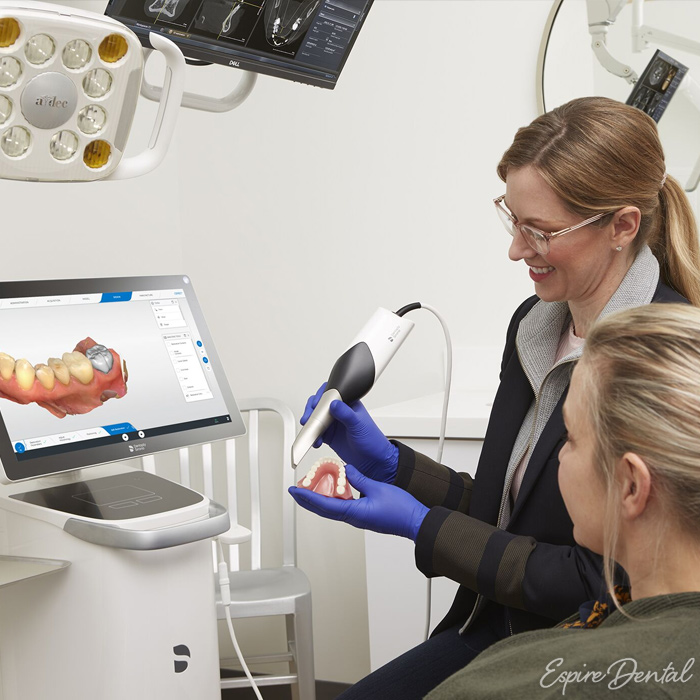
Because many dental patients have questions about dental anesthetics, let’s discuss the major types of dental anesthetics and how each one works.
Many dental patients have anxiety around dental procedures, especially when they require anesthesia. Concerns about anesthesia are understandable, but understanding the differences between your options can help assuage your anxiety.
What anesthesia is right for me?
The type of anesthesia your dentist will suggest will be based on the type of procedure and your medical history.
Longer procedures, and more invasive types of oral surgery, are suited to a heavier anesthetic in order to keep you calm and comfortable during the procedure. Smaller, less time-consuming procedures, like filling a cavity, might require only a local anesthetic that covers a small portion of your mouth.
Your medical history also affects your choice of anesthetic. Some anesthetics can have risky side effects for patients with certain medical conditions, especially if you are pregnant, suffer from blood pressure issues, or have a history of substance abuse.
To clear up some of the mystery surrounding dental anesthesia, here is an explanation of the different types of anesthesia your dentist might recommend. For each type of anesthesia, we’ll discuss how it works, why it’s used, and the procedures that it’s used for. The main types of dental anesthesia are local anesthesia, sedation, and general anesthesia.
Local anesthesia.
Local anesthesia serves to numb a small region of the mouth without putting you to sleep. Your dentist might use local anesthesia to fill a cavity, to perform a root canal, or to insert stitches.
Local anesthetics include gels, sprays, and ointments apply directly to the surface of the treated area. Local anesthesia can also be injected into the area surrounding your treated area, when it is often combined with another substance like epinephrine to prevent your anesthetic from spreading to other parts of the body.
Most people have no lasting side effects from local anesthesia. People with blood pressure disorders and pregnant women should consult their dentist before receiving local anesthetic to ensure the numbing agent doesn’t increase health risks.
Sedation.
Dental sedation is a broad term that refers to substances offering a full-body calming effect during your dental procedure.
During dental sedation, you will probably be able to respond when your dentist asks you a question, but you won’t be able to remember much of the procedure when it’s over. Sedation is commonly administered by inhaling nitrous oxide, or “laughing gas”. Your dentist could also provide sedation with a pill, or intravenous injection.
Some side effects are possible from sedation — they include nausea, dizziness, and headaches. People with high blood pressure, pregnant women, sleep apnea, or substance abuse disorders should discuss these conditions with their dentist before undergoing sedation.
General anesthesia
General anesthesia refers to an anesthetic that makes you fully unconscious. You might need general anesthesia for long procedures, or very serious oral surgery.
You can undergo general anesthesia either through IV injection, or by breathing an anesthetic gas. Even though general anesthesia may be ideal for certain dental procedures, it can also have more serious side effects than local anesthesia or sedation.
Talk to your dentist if you have any risk factors for general anesthesia, which include high blood pressure, bleeding concerns, pregnancy, COPD, and other conditions that might affect your blood pressure, your breathing, or your nervous system.
Should I get dental anesthesia?
There are several types of dental anesthesia, and your dentist will make a recommendation based on your medical history, the procedure you will receive, and your preferences. For patient-centered dental care in the Denver metro, schedule an appointment at Espire today. Our qualified dentists can help you choose what anesthesia is right for your procedure.


